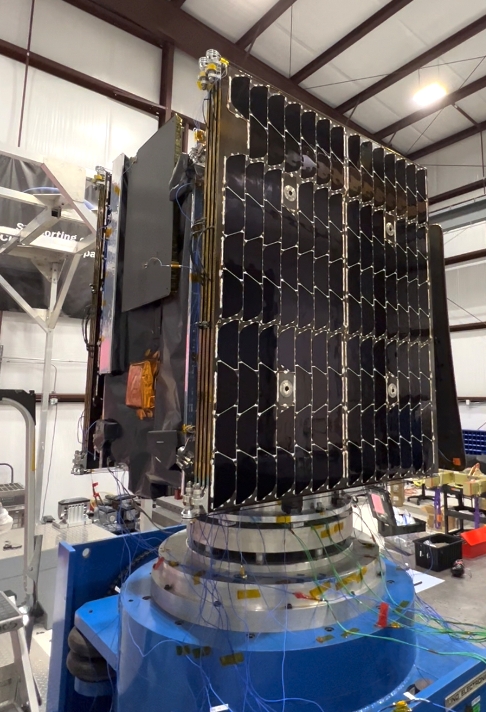Astranis Space Technologies’ First MicroGEO Satellite Completes Final Testing and Is Ready for Launch
Space technology company, Astranis has completed all the major tests needed for its first MicroGEO spacecraft to be ready to ship to the launch site, including vibration and vibroacoustic tests, final solar array and antenna deployment tests, propulsion system tests, software tests and electrical checkouts. This follows a successful thermal-vacuum, or TVAC, test campaign that was concluded late last year.
Vibration and vibroacoustic tests, collectively known as the vibe test campaign, are some of the most intense tests of structural and mechanical endurance for any spacecraft. During vibe, the vehicle was subjected to low-to-mid frequency mechanical vibrations and mid-to-high frequency acoustic vibrations simulating the extreme forces it must withstand during launch. Afterward, Astranis engineers performed a final series of software and hardware checks to ensure the payload is fully functional and the satellite remains mission-ready.
“Having passed this final sequence of tests, our first commercial satellite is now officially ready for launch,” said John Gedmark, CEO and co-founder, Astranis. “Passing these checks is always something to celebrate, but this time it’s especially meaningful because we’re building something new the world has never seen before and sending it to space for the very first time.”
When the satellite enters service later this year with capacity leased exclusively to Alaskan Pacific Dataport Inc (PDI), it will have an immediate impact on bridging the state’s digital divide. The MicroGEO satellite is expected to triple the state’s currently available satellite bandwidth.
According to Chuck Schumann, CEO, Pacific Dataport, Alaska is the largest state with the lowest population density so there are people who live in very isolated places requiring fast, reliable broadband internet services. There are no cell towers, no cable and no fibre.
“Affordable, reliable broadband is a generational change for a community like that and this satellite is going to help us bring this change for our entire state,” he concludes.
- UK manufacturing steps up to COVID-19 crisis - April 2, 2020
- Clustering Innovation - March 12, 2020
- A Global Monitor - March 6, 2020

